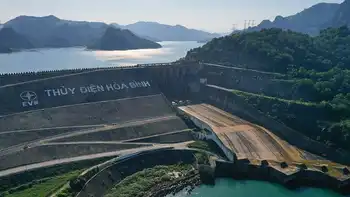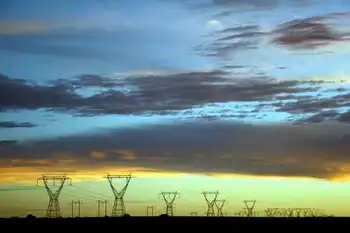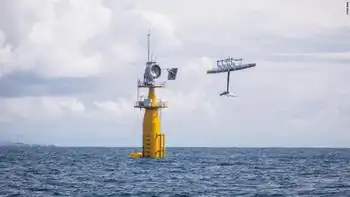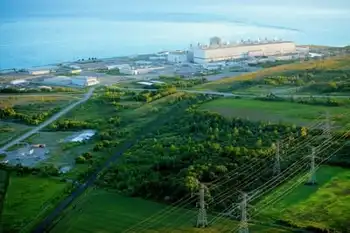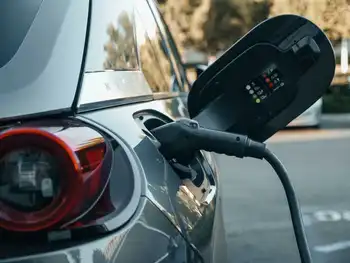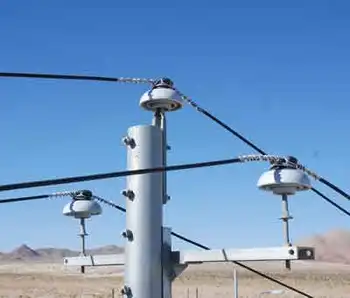India's Solar Growth Slows with Surge in Coal Generation
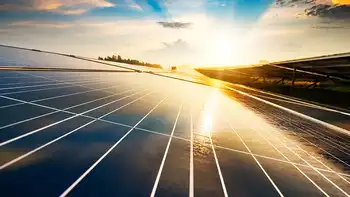
Protective Relay Training - Basic
Our customized live online or in‑person group training can be delivered to your staff at your location.

- Live Online
- 12 hours Instructor-led
- Group Training Available
India Solar Slowdown and Coal Surge highlights policy uncertainty, grid stability concerns, financing gaps, and land acquisition issues affecting renewable energy, emissions targets, energy security, storage deployment, and tendering delays across the solar value chain.
Key Points
Analysis of slowed solar growth and rising coal in India, examining policy, grid, finance, and emissions tradeoffs.
✅ Policy uncertainty and tender delays stall solar pipelines
✅ Grid bottlenecks, storage gaps, and curtailment risks persist
✅ Financing strains and DISCOM payment delays dampen investment
India, a global leader in renewable energy adoption where renewables surpassed coal in capacity recently, faces a pivotal moment as the growth of solar power output decelerates while coal generation sees an unexpected surge. This article examines the factors contributing to this shift, its implications for India's energy transition, and the challenges and opportunities it presents.
India's Renewable Energy Ambitions
India has set ambitious targets to expand its renewable energy capacity, including a goal to achieve 175 gigawatts (GW) of renewable energy by 2022, with a significant portion from solar power. Solar energy has been a focal point of India's renewable energy strategy, as documented in on-grid solar development studies, driven by falling costs, technological advancements, and environmental imperatives to reduce greenhouse gas emissions.
Factors Contributing to Slowdown in Solar Power Growth
Despite initial momentum, India's solar power growth has encountered several challenges that have contributed to a slowdown. These include policy uncertainties, regulatory hurdles, land acquisition issues, and financial constraints affecting project development and implementation, even as China's solar PV growth surged in recent years. Delays in tendering processes, grid connectivity issues, and payment delays from utilities have also hindered the expansion of solar capacity.
Surge in Coal Generation
Concurrently, India has witnessed an unexpected increase in coal generation in recent years. Coal continues to dominate India's energy mix, accounting for a significant portion of electricity generation due to its reliability, affordability, and existing infrastructure, even as wind and solar surpassed coal in the U.S. in recent periods. The surge in coal generation reflects the challenges in scaling up renewable energy quickly enough to meet growing energy demand and address grid stability concerns.
Implications for India's Energy Transition
The slowdown in solar power growth and the rise in coal generation pose significant implications for India's energy transition and climate goals. While renewable energy remains central to India's long-term energy strategy, and as global renewables top 30% of electricity generation worldwide, the persistence of coal-fired power plants complicates efforts to reduce carbon emissions and mitigate climate change impacts. Balancing economic development, energy security, and environmental sustainability remains a complex challenge for policymakers.
Challenges and Opportunities
Addressing the challenges facing India's solar sector requires concerted efforts to streamline regulatory processes, improve grid infrastructure, and enhance financial mechanisms to attract investment. Encouraging greater private sector participation, promoting technology innovation, and expanding renewable energy storage capacity are essential to overcoming barriers and accelerating solar power deployment, as wind and solar have doubled their global share in recent years, demonstrating the pace possible.
Policy and Regulatory Framework
India's government plays a crucial role in fostering a conducive policy and regulatory framework to support renewable energy growth and phase out coal dependence, particularly as renewable power is set to shatter records worldwide. This includes implementing renewable energy targets, providing incentives for solar and other clean energy technologies, and addressing systemic barriers that hinder renewable energy adoption.
Path Forward
To accelerate India's energy transition and achieve its renewable energy targets, stakeholders must prioritize integrated energy planning, grid modernization, and sustainable development practices. Investing in renewable energy infrastructure, promoting energy efficiency measures, and fostering international collaboration on technology transfer and capacity building are key to unlocking India's renewable energy potential.
Conclusion
India stands at a crossroads in its energy transition journey, balancing the need to expand renewable energy capacity while managing the challenges associated with coal dependence. By addressing regulatory barriers, enhancing grid reliability, and promoting sustainable energy practices, India can navigate towards a more diversified and resilient energy future. Embracing innovation, strengthening policy frameworks, and fostering public-private partnerships will be essential in realizing India's vision of a cleaner, more sustainable energy landscape for generations to come.





